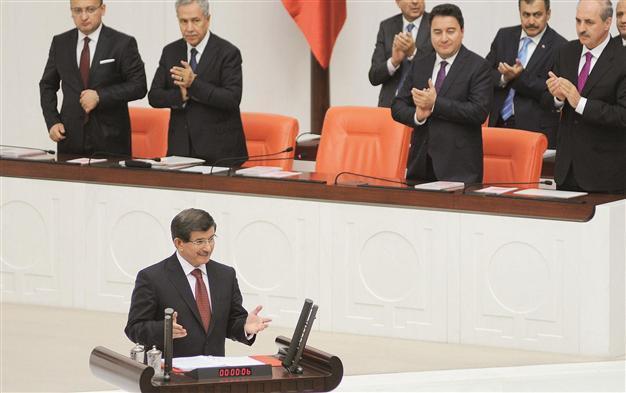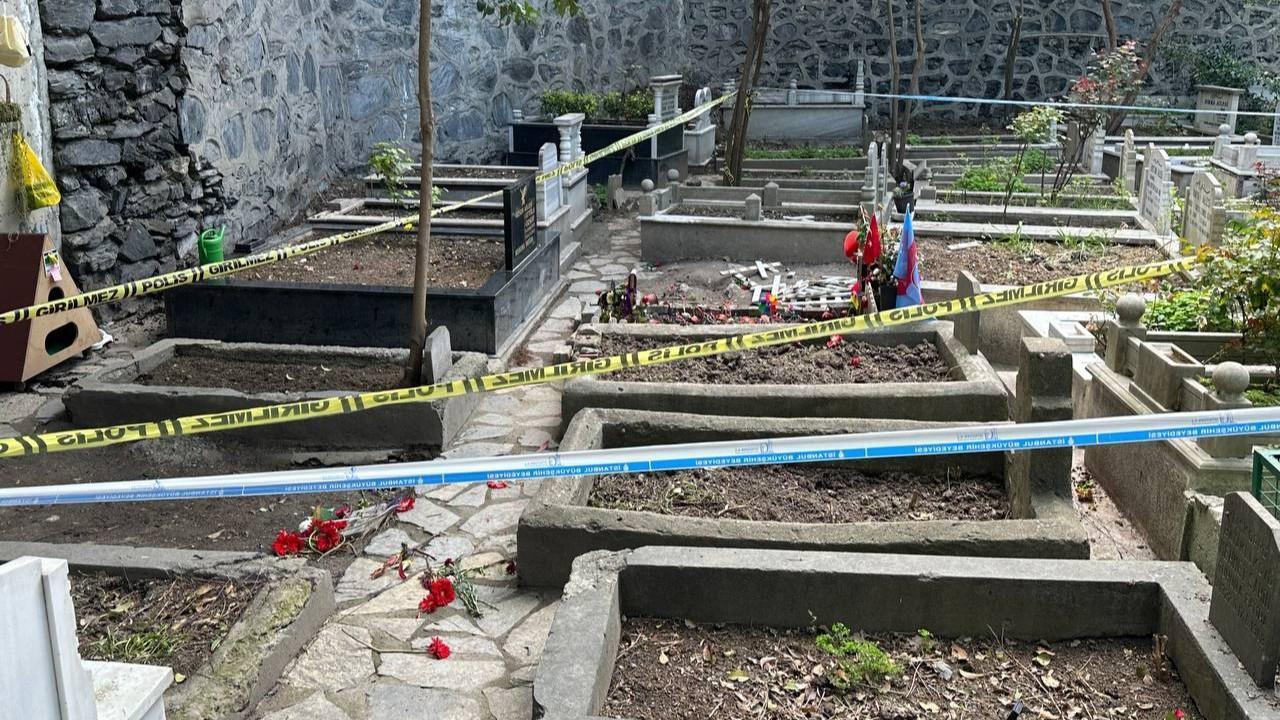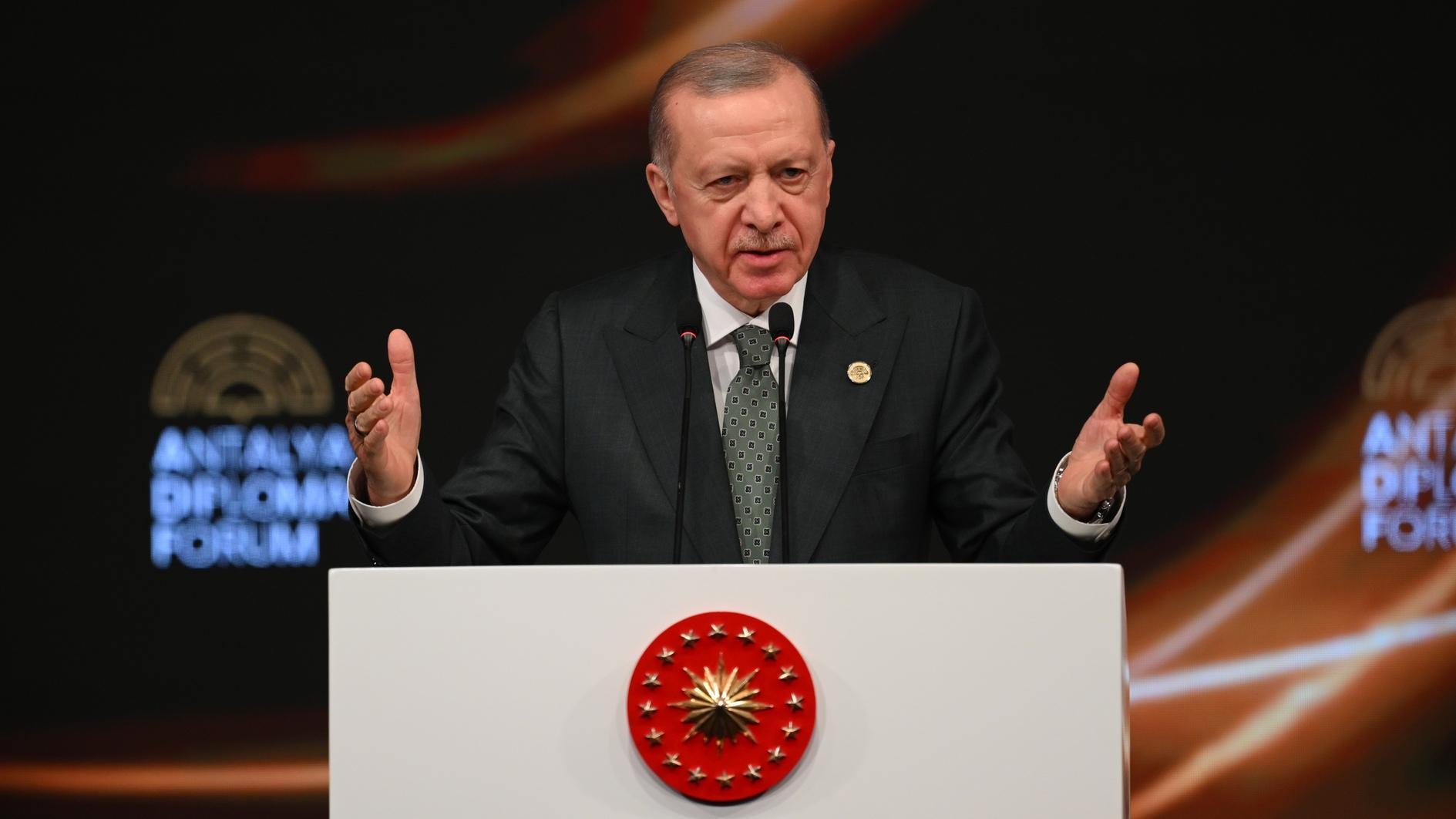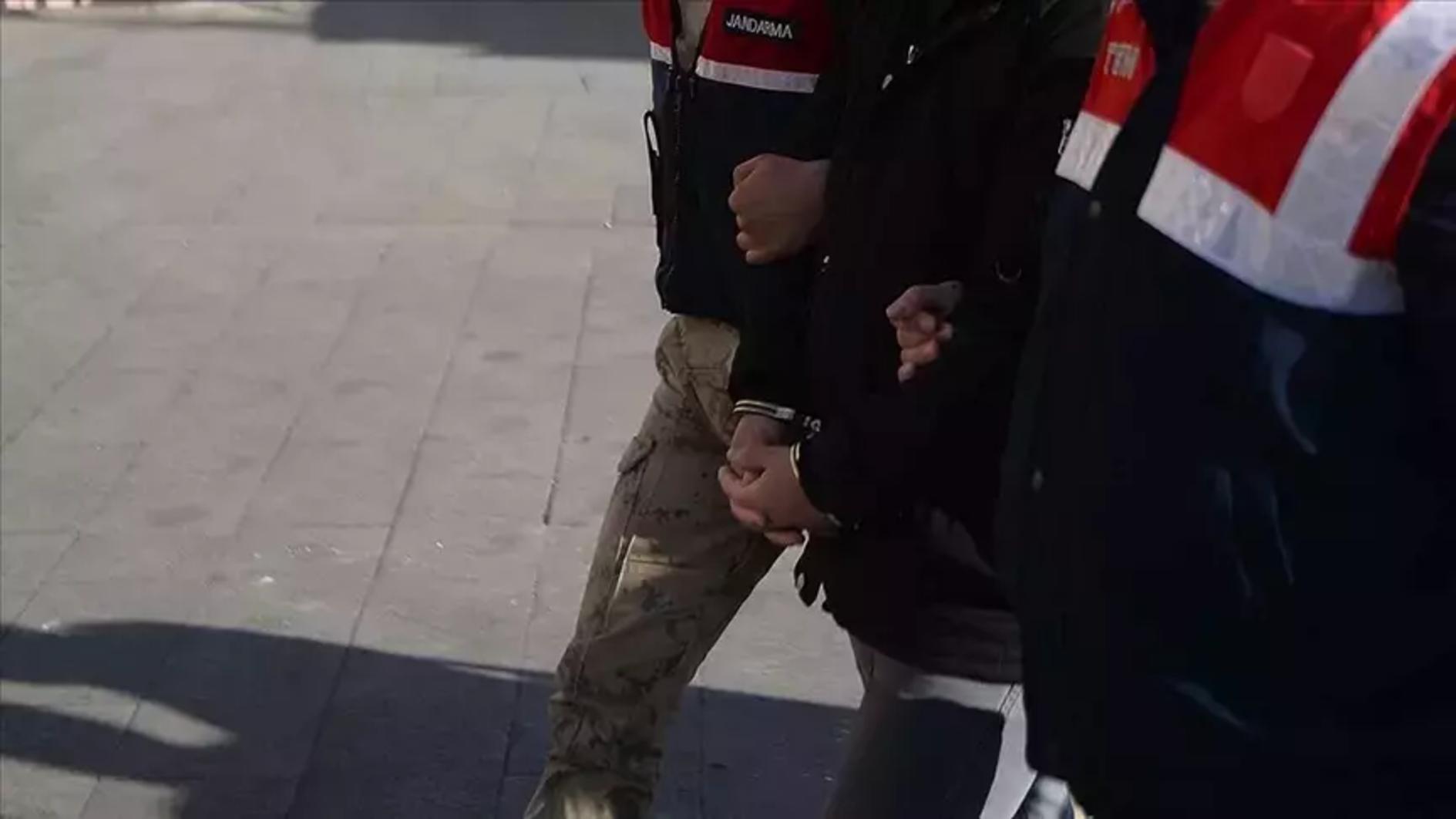Kurdish peace bid in new government program as a first
ANKARA

Cabinet members are seen applauding Prime Minister Ahmet Davutoğlu following his presentation of the new government program in Parliament. AA Photo
The ruling Justice and Development Party (AKP) has marked yet another threshold in documenting the ongoing peace process with the outlawed Kurdistan Workers’ Party (PKK), explicitly presenting the issue as a matter handled by intelligence officials for last few years.“Strong steps aimed at solving of our country’s domestic issues, with the resolution process being in the first place, will be taken with determination, and our position in the world race will be strengthened as a nation. Our nation is an inheritor and carrier of a great civilization, at the center of which unity and fraternity in plurality exist,” Prime Minister Ahmet Davutoğlu said, while reading out the preface of the program of the 62nd government of the Turkish Republic at Parliament on Sept. 1, days after he was tasked with forming a new Cabinet by new President Recep Tayyip Erdoğan.
The preface was not the only place where the peace process, which the government prefers to call a “resolution process,” was cited.
Along with the preface and conclusion, the 189-page program was divided under five titles: Advanced Democracy, Humanitarian Development, Livable Spaces and Environment, Strong Economy and Pioneer Country. A subtitle under the Advanced Democracy section, the “Societal Integration and Resolution Process,” was entirely dedicated to the process aiming to end the three-decade-long conflict between Turkey’s security forces and the PKK. Playing a central role in the process, jailed PKK leader Abdullah Öcalan has been in dialogue with both state officials and members of Parliament since at least late 2012.
The former prime minister, Erdoğan, and members of the Cabinet have so far constantly underlined that officials involved in the dialogue were not governmental officials, but state officials, mainly from the National Security Organization (MİT).
However, with release of the new government’s program and after a law providing a legal framework to the ongoing negotiations with the PKK and giving partial immunity to state officials involved in the process went into force in mid-July, the 12-year old AKP government apparently now feels ready to officially leave its fingerprints on the yet-to-be-completed-process.
“The Resolution Process is in a unique, key position for unification, but not for separation; for growing but not for waning; for integration and being able to become a regional power, but not disintegration ... We aim to break the privileged citizenship order and realize the understanding of equal citizenship and common understanding of belonging. This process will reveal a new consciousness of belonging through a psychological restoration,” stated the program.
“We, as the 62nd government, will continue with this Project of Fraternity wholeheartedly,” it added.
Last month, Öcalan met MİT’s chief Hakan Fidan in his island prison. Also last month, outgoing Deputy Prime Minister Beşir Atalay, now the spokesperson for the ruling AKP, reiterated that the government has been working on a “roadmap” for the revival of the stalled peace process with the PKK, without citing an exact date for the finalization of the roadmap. Atalay also stressed that the end of September is an estimate, not an exact deadline for the finalization of the roadmap.
In an Aug. 19 interview, in remarks widely considered an important milestone in the government’s efforts to disarm the PKK, Atalay indicated that the MİT could engage in direct talks with the PKK’s top cadres in their headquarters in the Kandil Mountains.
















